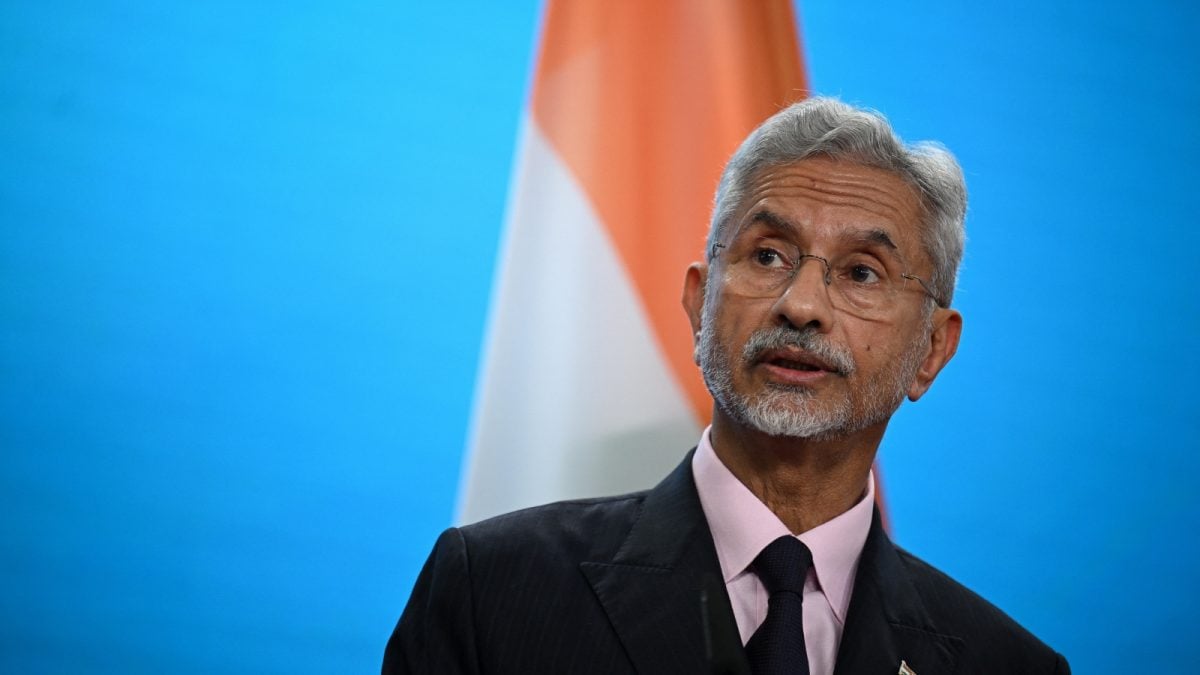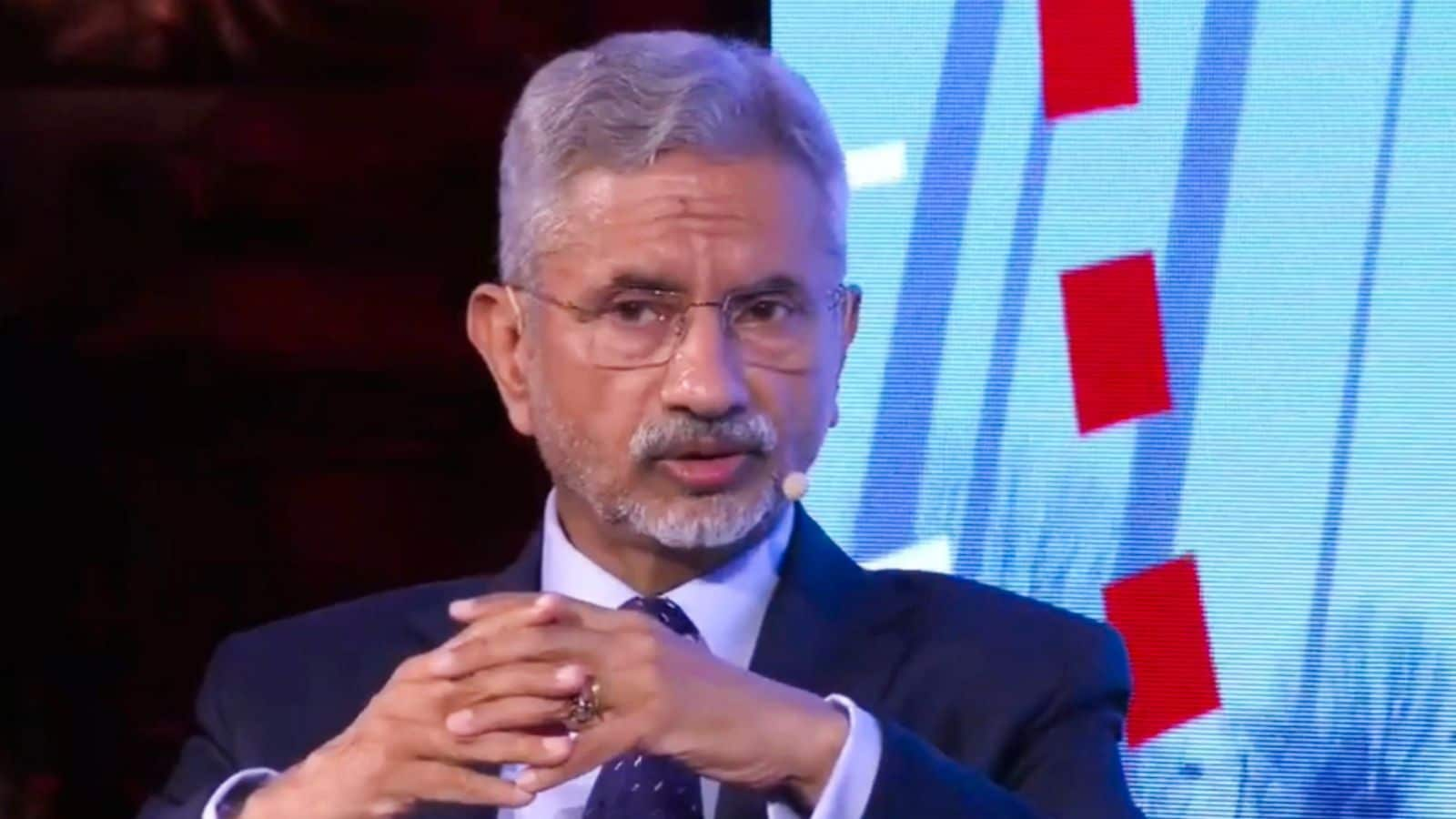Last Updated:May 11, 2025, 23:06 IST
By Sunday morning, things had returned to normal around Pokhran, as no attack was reported from Pakistan to the Indian side

A police officer who was at the spot told CNN-News18 that the area remained cordoned off for about 6-7 hours until Indian Army personnel came and took the object away. Image/News18
A loud, thunderous sound early Saturday morning woke up 65-year-old Padma Rath, who was sleeping at his home in Jamla village near Pokhran town in Rajasthan. An ex-serviceman, Rath took no time to assess that the sounds were of fighter jets patrolling the skies above India’s western border with Pakistan.
“Around 4.40 am, my son and I came out, and we heard jets in the sky. Soon we saw a blast in the sky, metres away from my house. We saw an explosion with huge sparks, seconds after which a missile-like, 10-12-foot, black metal case came down and fell right in front of me, next to my neighbour Manzurdin’s house. We immediately rushed inside, fearing further explosions. However, after 15-20 minutes, when everything went quiet, we came out and called others too," Rath said.
Soon, there was a huge swarm of locals surrounding the spot. The police, journalists, civil defence volunteers, and local authorities also came in to inspect the object. The area was then cordoned off, and those houses in proximity to the missile-like structure were vacated, Rath narrated.
A police officer who was at the spot told CNN-News18 that the area remained cordoned off for about 6-7 hours until Indian Army personnel came and took the object away. The object, police said, is believed to be a missile that was intercepted and blasted in the air by Indian fighter jets; however, it is subject to detailed inspection.
The incident took place hours after heavy shelling and cross-border firing were reported across the Indo-Pak border, including the state of Rajasthan, following India’s Operation Sindoor that destroyed several terror camps in Pakistan-occupied Kashmir and in some areas of Pakistan, causing the neighbouring country to resort to ceasefire violations.
Such droppings not only caused panic among residents of villages in forward areas but also led to the enforcement of strict restrictions, blackouts, and lockdown-like conditions by the authorities.
Rath and his co-villagers, at least 70-80 of them, were not the only ones who had to spend hours outside their houses, under the scorching sun, watching as authorities made arrangements to shift the fallen missiles and drone parts to safety.
Just a few hours after the Jamla incident, a similar structure was spotted lying in deserted rural fields of Jodhpur, where locals had gathered, and the police were informed.
However, fortunately, in both incidents, no loss of civil architecture or life was reported, the authorities confirmed.






‘Divine grace’
Even on Friday, in the Ramgarh area, roughly about 35 kilometres from Jaisalmer, the last town where civilian movement was allowed, there was a similar incident. Arjun Dahia, who runs a restaurant on the Jaisalmer-Tanot highway, said a bomb fell close to his eatery, causing panic amongst the local residents.
“We were all scared because the bomb-like thing was too close to the houses here, but it was by the divine grace of Tanot Mata Mandir that the bomb did not explode. We had informed the police, and a huge team of police and army officials arrived here within hours, who took the object away safely," Dahia said.
During the India-Pakistan war of 1965, it is believed that out of thousands of bombs dropped by Pakistan near the temple of Mata Tanot, none of them exploded because of her blessings to the local residents. “It is a strong belief among the locals that the temple will save them from any such blast. Our ancestors have seen it, and now we have too. We strongly believe in Mata Tanot’s blessings," Dahiya said.
A day before these incidents, in Jaisalmer’s Kishanghat area, it was Jivesh and his neighbours who had to vacate their houses and wait for hours until a bomb-like thing that locals claimed had fallen off one of the Pakistani drones struck by India was defused by military personnel.
Authorities at the spot confirmed to CNN-News18 that the object was possibly an active “drone cell" that had fallen off a drone and still had the potential for a high-magnitude explosion.
“Since late Thursday night, people from civil defence and the police arrived at our village and asked us to keep away from the site. It was a blue, roughly foot-long object that we saw lying next to an under-construction house in our village. It was finally on Friday afternoon that, following a controlled explosion, the site was cleared, and we could return to our house," said Jivesh, who works as a daily wage labourer.
The explosion was such that it threw debris 15-20 feet up in the air and shook nearby structures despite being covered under sandbags by the army personnel.
This instilled fear among the local residents, which was only aggravated after a few more such active bombs/shells were recovered from the rural desert surroundings in the district. Local villagers, however, claimed each such sighting was reported to law enforcement so that adequate safety measures could be initiated.
The sarpanch of Kishanghat village said, “In a coordinated manner, every resident of our village reported any such incident to me, and we together then called in the police so that no life is at any risk here. Because of the ongoing situation, we have sensitised villagers to immediately report any such incident. We are making every effort to support the government and local administration in this situation."
Life returns to normal
Following three days of heavy firing along the international border between India and Pakistan and at the Line of Control, the two countries announced a ceasefire late on Saturday evening.
On Saturday night, when drones were spotted in the skies over Jaisalmer and Pokhran, a complete blackout was imposed as a precautionary measure. By Sunday morning, however, things had returned to normal, as no attack was reported from Pakistan to the Indian side.
In Pokhran, while shops reopened after a continuous 48-hour lockdown, traffic flow remained normal, and restrictions were lifted.
Manzoor, who runs a hospital in Pokhran, said they had to discharge all patients on Thursday because of blackouts and threats of shelling. “For the past two days, we were following a complete lockdown. It looked like the Covid period was back. Shops were all shut, vehicle movement was minimal, and people stayed in their houses. But on Sunday morning, we reopened as restrictions have been lifted following the ceasefire. We are happy that life has returned to normal," he said.
Another resident, Ashim, said even though they suffered losses because of the restrictions, “country comes first".
“Despite the loss, we are happy that our army did its best, and the government successfully avenged the Pahlgam killings by destroying Pakistan-sponsored terror camps. We are in support of the government, but we are also happy and hopeful that things will remain peaceful now," said Ashim, who runs a grocery store.
Location :Pokaran (Pokhran), India, India
First Published:News india 'Sitting Literally On Ticking Bombs': Locals Live For Hours With Shells, Missile Parts Rained By Pakistan At Western Border

 1 month ago
1 month ago















